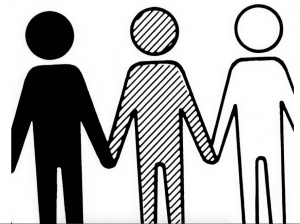
On Monday the Daily Nation published a story about a Chinese restaurant in Nairobi’s Kilimani area that unapologetically refuses entry to African customers after 5 pm. Trying to gain entry after the appointed hour Nation journalist Njoki Chege was reportedly told “Masaa ya Waafrika yameisha” by a guard at the gate.
Only “loyal” African patrons are allowed in Chinese restaurant after sunset http://t.co/GopbwANlU2 pic.twitter.com/Owpd94nkGP
— Daily Nation (@dailynation) March 23, 2015
It took five seconds for twitter to go kaboom! The hashtags #ShutDownTheChinese , #RacistRestaurant and #NoBlacksHere trended as Kenyans expressed their disgust at the news. How was such a thing possible in Kenya in 2015? But, it wasn’t long before things took a dark turn. Soon fury over the apparent racism at the restaurant turned into a wholesale attack on Chinese people.
The Chinese with their small penis and flat buttocks shud know people.#ShutDownTheChinese
— KIBUCHI GABRIEL (@mkibuchis_Mzito) March 23, 2015
Now these chinkus will tell us not to use thika road after sunset #ShutDownTheChinese — Arturo Magix™ (@Arturo_Magix) March 23, 2015
Chinese have become like a plague. ..its the hi time they leave #ShutDownTheChinese @xtiandela
— Nyaga nyaga (@Di_Nyaga) March 23, 2015
watu hukula doggie ndio wamekuja kuset standards huku? #ShutDownTheChinese — jimmy nyoike (@jimmy_nyoike) March 23, 2015
#SHUTDOWNTHECHINESE this the guy who reduced the number of dogs in our hood pic.twitter.com/tGUSUxn8VP
— Mbukinya (@MuyembeleP) March 23, 2015
#NoBlacksHere They come to our land, collect snails, snakes n street dogs n deny us a accessibility to the place past 5? #RacistRestaurant — sanznoddez (@DennisNgoya) March 23, 2015
#noBlacksHere! ching chongs eat dogs and we don’t have to be there..!
— Sam Kipruto Bett (@Qipruu) March 23, 2015
The vicious pile on against Chinese people – as a whole – instead of the bigoted management of the restaurant was all too much for some Kenyans. Ronald Mackio, a local activist and filmmaker, counseled Kenyans against poisoning their own message by turning into the monster they were condemning.
Let’s not become the very demons we are fighting. Don’t be racist in the name of condemning racism. — Ronald Mackio (@mackio_) March 23, 2015
Some observers theorised that Kenyans, scandal-ridden and bigoted against each other, were overcompensating for their own guilt.
We,corrupt tribalist Kenyans, so heavy laden by our guilt, are glad to find quick relief and scapegoat in racism.But our sins weigh heavier.
— Al-Amin Kimathi (@alaminkimathi) March 23, 2015
While some suggested it was a good opportunity for Kenyans to learn about how their own prejudices hurt others, particularly members of the Somali community who have been treated as second-class citizens in the recent past.
@bettywaitherero let ordinary Kenyans feel the pain. Same way Somali’s feel when discriminated,profiled n stereotyped. No double standards
— kdanmarigi (@kdan254) March 23, 2015
But when we rounded up Kenyan Somalis and took them to Kasarani stadium … We didn’t have a twitter handle #NoBlacksHere #RacistRestaurant
— Brian Kyallo Msafiri (@BrayoMsafiri) March 23, 2015
The management of the Chinese restaurant was wrong to refuse entry to African patrons but the Kenyans who, in a fit of self-righteousness, were involved in the racist pile on, showed themselves to be no better. This is perhaps not so surprising. Racism and tribalism, after all, are first cousins.
The impulse that made those Kenyans tweet those offensive things against the Chinese nation is the same one that makes them post/say/text (delete as appropriate) tribal vitriol. Given our own obvious faults, instead of running the owners of Chinese restaurant out of town – as some are suggesting online – we should respond with a little more empathy and give them another chance. We’re more like them than we think.

